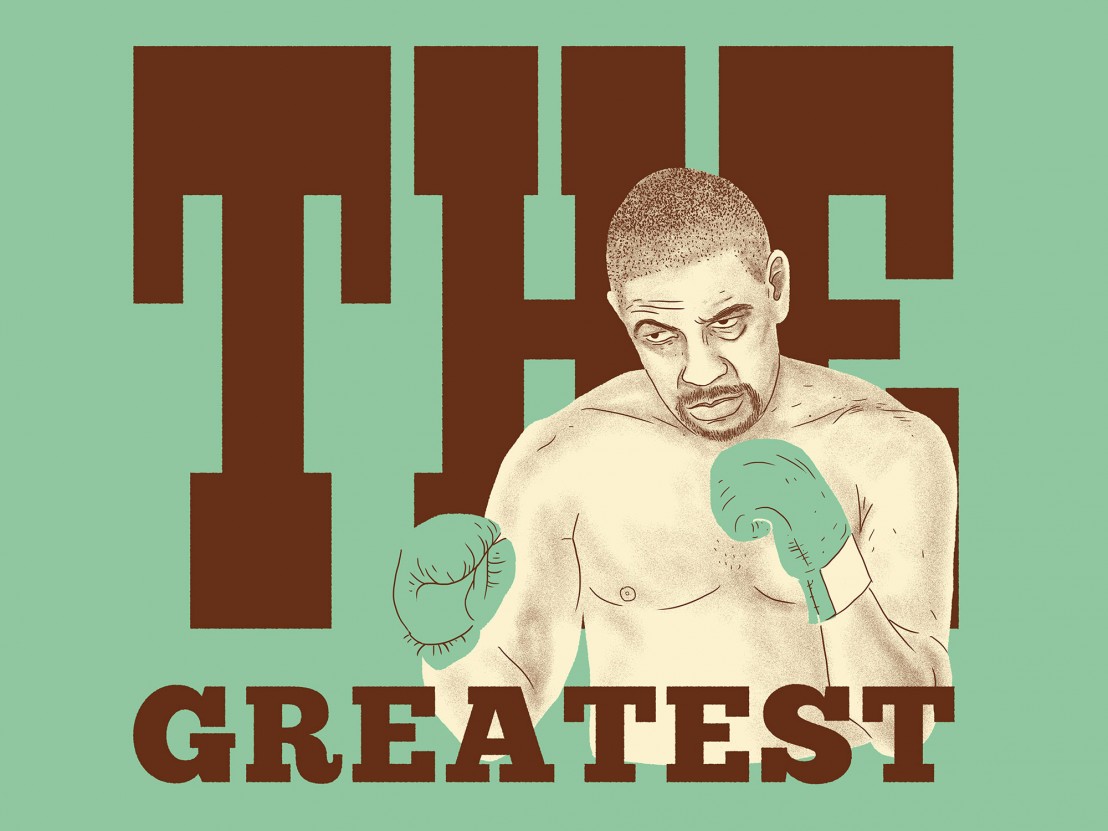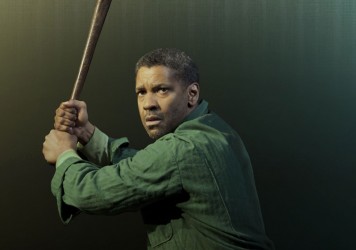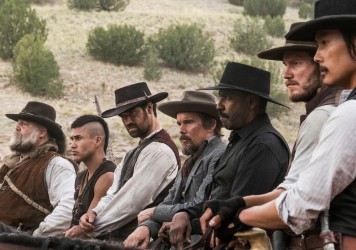
The Magnificent Seven director offers a unique first-hand take on the acting heavyweight’s enduring appeal.
Back in February 1998, Premiere magazine ran a cover story about commercial directors who had successfully moved into movies. A group shot of Michael Bay, David Fincher, Simon West, Dominic Sena and Antoine Fuqua was accompanied by the somewhat hyperbolic headline: ‘Do these men represent the future of Hollywood filmmaking – or the death of it?’
Linking them was the now defunct Propaganda Films, which produced, among other titles, Bay’s Armageddon, Fincher’s The Game, West’s Con Air, Sena’s Gone in Sixty Seconds and Fuqua’s The Replacement Killers. Some months later, Pauletta Washington remembered the magazine cover and showed it to her husband around the time he and screenwriter David Ayer were searching for someone to helm a project called Training Day. She had seen The Replacement Killers and recommended it to Denzel, who was impressed enough to set up a meeting with Fuqua. Here, the director reflects on how his relationship with The Magnificent Seven star blossomed during that initial collaboration, and offers his take on what makes Washington such an enduring, irresistible screen icon.
“I remember my first day on set with Denzel. By this point we had talked about the script [for Training Day] a bunch of times, and I felt like we had a pretty good understanding of each other. We were on the same wavelength in terms of where we wanted to take the project. But when the relationship was really cemented for me was in the beginning, on the first day of filming. We were shooting the scene in the diner, and I walk over to Denzel – and you have to remember, I’d started to feel like I knew the guy, but to me Denzel is like Michael Jordan – and ask him if he wants to come over to look at the monitors. He goes, ‘Well, you good?’ I go, ‘Yeah,’ he goes, ‘Great. I don’t need to see it then. Call me when you need me.’ And he walked away. Two things happened in that moment: number one, this guy trusts me; and number two, this guy trusts me – don’t fuck it up. He puts so much trust into the director and it was interesting for me because he honestly didn’t look at the monitor, at all. He would just look to me at the end of each take and if I was happy that was good enough for him. Me and him were like two jazz musicians just riffing off each other – and it remained that way throughout the entire movie.
Read more exclusively inside LWLies 66: The Magnificent Seven issue
Get the Mag“Denzel is different. You can’t treat him like he’s just another actor because the truth is he’s not. You work with everyone differently, of course, and you have different relationships with different actors. The most important thing I learned when working with Denzel was to respect his process. He’s a very smart, thoughtful actor. I call him the logic monster. If you don’t have a reason behind something, Denzel’s not going to do it. He’ll challenge you on things that he just doesn’t believe in, unless you have an explanation for it that makes sense and clicks. But he’s very giving and open. He’s a great leader, someone who leads from behind. Sometimes I would watch him do that. The key thing was never tying his hands. I always left room – both within the frame and within the framework – for him to find freedom and try other things. For example, the whole “King Kong ain’t got shit on me” thing – that part of the speech wasn’t written. I could see sometimes where these things were going, or I could feel the energy, and it was always important to feel like I was in tune with him so I could be where I needed to be with my camera once I’d set up the shot, to capture what he’s giving you. Because Denzel will give you everything.
“We kept in touch after that, I’d see him at the house sometimes or we’d go for dinner. But it wasn’t until much later that we got to work together again, on The Equalizer. We had a great time making that movie together, and when MGM approached me with the idea of remaking The Magnificent Seven, Denzel was the first person who came to mind. I read the script, and they really did a good job in terms of getting all the DNA of the story in there. But when we started going down the list of actors it felt like we were just going through the usual suspects. Now, I knew I wanted Denzel at this point, but I’d decided to keep my cards close to my chest. I felt like it needed something more, like the casting had to be an event in itself.
“So we were having a meeting, the producers and I, and I said, ‘What about Denzel Washington? Denzel would be amazing on a horse…’ It was one of those moments where the room fell completely silent. Eventually someone said, ‘Do you think you could get him to do it?’ Honestly, I had no idea, but I knew I could at least speak to him about it. So I arranged a lunch with him in New York and Denzel, his daughter and I met up and I pitched him the idea. He started laughing because he knows how much I love westerns. Immediately we talked about Seven Samurai, and I started describing to him how I saw it and he agreed to think about. So I knew there and then he was intrigued by the idea. He went away and read the script and then called me and said, ‘Are MGM really going to do this?’ and I said, ‘Well, yeah…’
Read our review of The Magnificent Seven“Once he started getting into it you could tell he was really excited. When he started putting his guns and his holster on, he wouldn’t take it off. He started immediately going and riding horses and all that. It was amazing. And I started getting excited about it because I realised how much I wanted to see Denzel on a horse. The thing for me is, the west has always been one way, it’s always had one look. I wanted to challenge that and do something contemporary, because I think that’s one of the issues with westerns. I wanted something that looked and felt more diverse, like the world we live in today. He’ll always tell me in advance if there’s anything he wants to do with a character – on The Equalizer, for example, he wanted to shave his head. So we’d talk about that stuff and I would watch it evolve. The first thing we talked about on The Magnificent Seven was sideburns. We were at the Mayweather-Pacquiao fight in Vegas a couple of years ago, and we discussed the fact he wanted to grow sideburns and how long they were going to be.
“Denzel is a movie star. He doesn’t like that – he would rather be known as an actor’s actor, which is totally right because he loves theatre and that’s where his heart is. Ask him about it and I guarantee he’ll tell you that he’s an actor, and when he’s working he’s a working actor and when he’s not working he’s an unemployed actor. It says a lot about who Denzel is as a person, because you’ll never see him wearing expensive watches or anything fancy. The whole flash Hollywood thing, that’s not him. He’s not in the business for that. He just loves acting. But the thing with Denzel is, he’s a movie star. He’s tall, he’s powerful, he’s handsome, he’s charming, he’s highly intelligent, he has this booming voice and he has that deep, deep emotion as a person. And when he smiles he lights up the room. If you’re two rooms down and he starts laughing you know it’s Denzel. There’s not a lot of guys like that left, guys that have the full package. He’s a true movie star in that sense. And another thing, my god, the camera loves him. There’s magic you only see when you get to editing room, these little things that you didn’t even notice on set. And that’s why you have to give him room to do his thing, because he’ll always give you more if you do.
“He’s also the guy that everyone likes. Men like him because he’s a guy that you can have a beer with, you feel like you can have a good laugh with. And women like him because… well, for pretty obvious reason. And there’s a mystery to Denzel because he’s remained true to who he is. He really is just a regular guy in many ways. You meet him and he’s in sweatpants and tennis shoes. We meet each other all the time in the morning at the gym and he’ll box 9-10 rounds everyday. The thing that really makes Denzel great though, if I had to boil it down to one thing, is discipline. He studies his craft. He knows his history. He has the skillset to deliver on the screen not by chance, but through the research he does and because of what he brings to the character. He’s like a great athlete in that sense. You look at someone like Muhammed Ali… he hated training but he trained harder than anybody in order to get to the top of his game. Denzel is a lot like that. You may not see it, but he does the hard yards.”
The Magnificent Seven is in cinemas 23 September.
Published 20 Sep 2016

By Poppy Doran
The iconic leading man is set to bring an acclaimed stageplay to the screen.

Antoine Fuqua drags the beloved 1960 all-star dad western kicking and screaming into the 21st century.